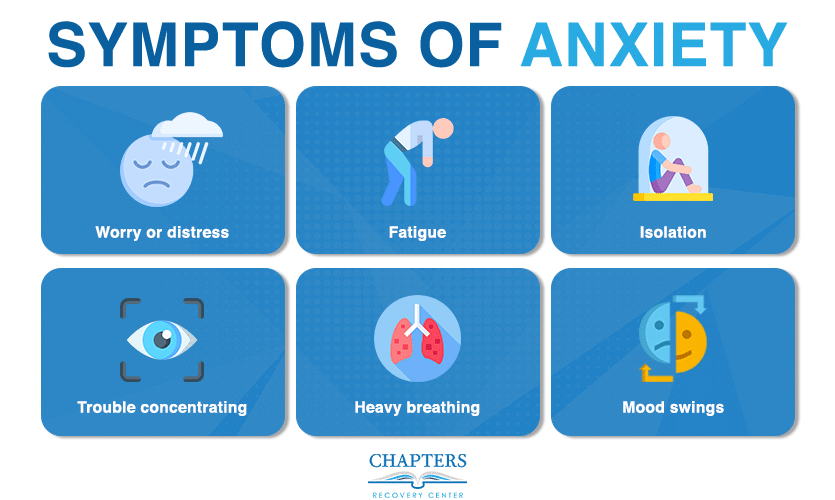As we welcome the arrival of June, we also recognize the significance of PTSD Awareness Month. A crucial initiative aimed at raising public awareness about post-traumatic stress disorder (PTSD). It’s a time to break down misconceptions, remove stigma, and generate meaningful conversations about PTSD.
At Chapters Recovery Center in Danvers, Massachusetts, we provide dual-diagnosis treatment for people suffering from PTSD and addiction. Don’t stay silent, and help us join the fight this month for PTSD awareness!
History of PTSD Awareness Month
While the term “PTSD” was first included in the third edition of the Diagnostic and Statistical Manual of Mental Disorders in 1980, the condition has long been recognized in various forms. Historically, it has been referred to as “soldier’s heart,” “shell shock,” and “war neurosis,” highlighting its frequent association with combat and military service.
PTSD Awareness Month originated from a Senate resolution (S. Res. 455) passed in 2010. This dedicated observance month aims to promote dialogue about PTSD, reduce the stigma associated with the disorder, and ensure that those suffering from the invisible wounds of trauma receive proper treatment.
Why is it Important to Highlight PTSD for June?

This is why PTSD Awareness Month is so important. By highlighting the reality of PTSD, we can cultivate a broader and more specific understanding of this condition. Through awareness, we aim to reduce the stigma that often surrounds mental health conditions like PTSD, thereby encouraging more individuals to seek help and assuring them that they are not alone. With awareness, we can also influence public policy and healthcare practices, ensuring better accessibility and quality of care for those dealing with all mental health conditions.
During PTSD Awareness Month this June, let’s renew our commitment to understanding, preventing, and treating this significant public health issue. Through education, awareness, and compassion, we can foster an environment in which individuals grappling with PTSD feel acknowledged, understood, and supported in their journey toward healing.
Understanding Post-Traumatic Stress Disorder (PTSD)
Post-Traumatic Stress Disorder (PTSD) is a complex mental health condition that can develop after a person experiences a traumatic event. These events may include physical or sexual assault, natural disasters, war, terrorist attacks, or other serious threats to personal safety. The impact of these experiences can be so significant and overwhelming that it disrupts an individual’s ability to cope, leading to the development of PTSD symptoms.
Signs and Symptoms of PTSD
Symptoms of PTSD are wide-ranging and can manifest in various ways. Severe emotional distress or physical reactions to reminders of the event are common occurrences in PTSD. Negative changes in thoughts and mood are also prevalent among those suffering from PTSD. Changes in physical and emotional reactions are another key aspect of PTSD.
Examples of these symptoms include:
- Recurring, intrusive memories of the traumatic event
- Nightmares and flashbacks related to the trauma
- Severe emotional distress or physical reactions to reminders of the event
- Avoidance of situations, places, or people that might bring back memories of the trauma
- Persistent negative beliefs about oneself, others, or the world
- Feelings of guilt, shame, or self-blame
- Loss of interest in activities once enjoyed
- Detachment from loved ones and difficulty experiencing positive emotions
- Increased irritability, angry outbursts, or aggressive behavior
- Difficulty concentrating and problems with memory
- Overly vigilant or easily startled
- Trouble sleeping and maintaining a regular sleep pattern
PTSD is a multifaceted mental health condition. It is characterized by a variety of symptoms, including intrusive memories, emotional distress, avoidance behaviors, negative changes in thoughts and mood, and alterations in physical and emotional reactions. Understanding the complexities of PTSD is essential for providing appropriate support and treatment to those affected by this debilitating disorder.
The Prevalence of PTSD
Trauma and PTSD
Veterans and PTSD
Facts You Need to Know During PTSD Awareness Month
- PTSD is more common than you might think. With 6% of adults in the U.S. suffering from PTSD, it’s likely that someone you know—maybe even you—has experienced it.
- PTSD can affect anyone. While PTSD is often associated with veterans, anyone who has experienced a traumatic event can develop the disorder.
- PTSD is treatable. Therapies such as cognitive-behavioral therapy, eye movement desensitization and reprocessing, and medication can be effective.
- Support is crucial. Social support from family and friends can significantly benefit those dealing with PTSD. Encourage open conversation, understanding, and patience.
- Prevention is possible. Ensuring early intervention following traumatic events, fostering resilience, and promoting overall mental health can help prevent the onset of PTSD.
- Research is ongoing. Studies continue to delve deeper into understanding PTSD, its causes, and the most effective treatment methods. This research is pivotal in improving the lives of those affected by PTSD.
- Self-care is essential for recovery. For those living with PTSD, engaging in self-care practices such as mindfulness, regular exercise, balanced nutrition, and adequate sleep can aid in managing symptoms and promoting recovery.
- PTSD can co-occur with other mental health disorders. Often, PTSD can coincide with conditions such as depression, anxiety disorders, or substance abuse. Comprehensive treatment approaches take this into account and treat these conditions concurrently.
- Resilience can be learned. Building emotional resilience isn’t just a natural ability; it’s a skill that can be developed. Therapy and supportive environments can help individuals learn to better cope with stress and bounce back from adversity.
This June, let’s bring PTSD into the light. PTSD Awareness Month is not just about understanding the disorder—it’s about acknowledging the courage of those who live with it and their ongoing fight against the consequences of trauma. By fostering empathy, reducing stigma, and actively advocating for research and effective treatments, we can make a difference in the lives of millions living with PTSD.
Ways to Get Involved During PTSD Awareness Month

- Educate yourself and others: Learn about PTSD, its symptoms, causes, treatments, and how it affects individuals and their families. Share this information with friends, family members, and colleagues to spread awareness. The more people understand PTSD, the less stigma surrounds it, and the easier it will be for those suffering to seek help.
- Share stories and experiences: Encourage people who have experienced PTSD to share their stories, either publicly or privately. This helps to destigmatize the disorder, create understanding, and offer support to those affected.
- Use social media: Share articles, resources, and personal experiences related to PTSD on social media platforms using hashtags like #PTSDAwarenessMonth or #PTSD.
- Attend or host events: Participate in local events, workshops, or support group meetings focused on PTSD. You can also organize your event to raise awareness and provide a platform for discussion.
- Donate to organizations: Support organizations that work to help individuals with PTSD, such as the National Center for PTSD, Wounded Warrior Project, or other mental health organizations. Donations can be monetary or in the form of volunteering your time and skills.
- Advocate for policy changes: Reach out to your local and national representatives, urging them to prioritize mental health services and support for individuals with PTSD.
- Wear a teal ribbon: The color teal is associated with PTSD awareness. Wearing a teal ribbon or clothing item during PTSD Awareness Month can help start conversations and raise awareness.
- Offer support to those affected: Reach out to friends, family members, or colleagues who may be dealing with PTSD. Offer a listening ear, words of encouragement, or assistance in finding professional help.
- Promote self-care: Encourage self-care practices among people with PTSD and their loved ones. This can include exercise, meditation, healthy eating, and seeking professional help when needed.
- Connect with local resources: Reach out to local mental health clinics, therapists, and support groups that specialize in PTSD. Share these resources with those who may need them and encourage others to do the same.
By participating in PTSD Awareness Month activities, you can help spread awareness, reduce stigma, and support individuals and families affected by this challenging mental health condition.
Make a Difference This June by Brining Awareness to PTSD

As we move forward, let’s continue to raise awareness, not just in June but throughout the year. Everyone plays a role in understanding and combating PTSD, whether it’s by supporting loved ones, advocating for effective policies, or simply taking the time to learn more about the condition.
This PTSD Awareness Month, let’s honor the strength of those living with PTSD and commit to making their path to recovery less burdensome and more hopeful. Contact us today to learn more about how we can help put an end to trauma, and how you can join our mission for PTSD awareness!
References
https://www.ptsd.va.gov/understand/common/common_adults.asp
https://www.woundedwarriorproject.org/media/ylwhpx4h/wwp-2022-annual-warrior-survey-full-report.pdf
https://hr.nih.gov/working-nih/civil/post-traumatic-stress-disorder-ptsd-2023








